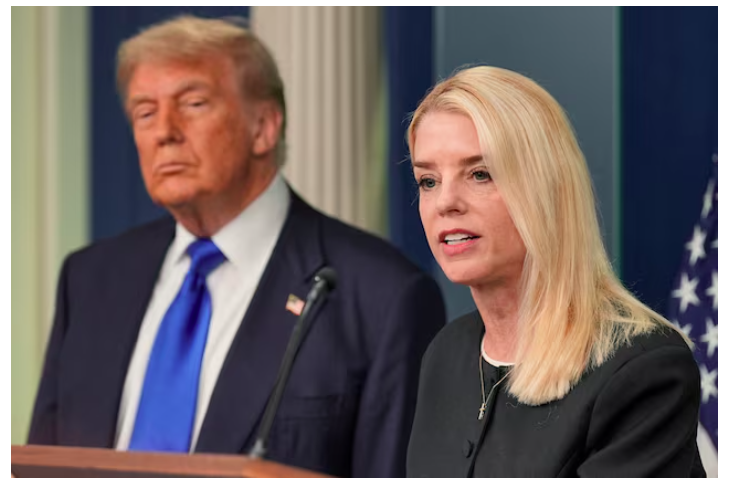Washington, D.C. — House Republicans took a significant step this week in advancing President Donald Trump’s signature economic package, dubbed the “Big, Beautiful Bill,” toward a decisive floor vote. The legislation—an America-first blueprint aimed at revitalizing domestic industry, securing borders, and reducing reliance on foreign adversaries—passed a key procedural hurdle, marking a pivotal victory for conservative lawmakers and the broader MAGA movement.
The president implored Republicans to rally around the bill despite individual grievances, applying maximum pressure in posts on his Truth Social account.
“Largest Tax Cuts in History and a Booming Economy vs. Biggest Tax Increase in History, and a Failed Economy. What are the Republicans waiting for???” Trump wrote on social media a few hours before the vote. “What are you trying to prove??? MAGA IS NOT HAPPY, AND IT’S COSTING YOU VOTES!!!”
The bill’s core features include expanded tariffs on Chinese and other foreign imports, sweeping deregulation measures, and tax incentives for domestic manufacturing. Supporters tout it as the most pro-America economic legislation in decades, aligning with Trump’s long-standing commitment to “bring jobs back home” and protect American sovereignty. “This is a win for every hardworking American,” said Rep. Elise Stefanik (R-N.Y.), who chairs the House Republican Conference. “President Trump laid the groundwork, and we’re carrying it forward.”
In a 218–206 vote, the House advanced the bill for final consideration. Every Democrat opposed the motion, while nearly all Republicans backed it. The narrow margin underscored the deep ideological divide on Capitol Hill—one that’s becoming increasingly defined by battles over national identity, economic independence, and America’s role on the global stage.
Trending: July 4th Sale! HYDROXYCHLOROQUINE? WIN A TESLA + $10,000 CASH
President Trump, who remains the undisputed leader of the Republican base, praised the House’s move in a Truth Social post, calling the bill’s progress “a massive leap forward for America’s comeback.” He added, “This bill will bring factories back, secure our borders, and make our country rich and safe again. The Swamp hates it—but the People love it!”
Critics, primarily on the left, decry the bill as overly protectionist and harmful to global trade relationships. But many conservatives argue that the current international economic order has repeatedly failed American workers. “For decades, we exported jobs and imported dependence,” said Rep. Jim Banks (R-Ind.). “Now, with Trump’s leadership, we’re flipping the script.”
Among the bill’s most notable provisions is a targeted increase in tariffs on products from nations deemed strategic threats, particularly China. These tariffs are expected to generate billions in federal revenue while incentivizing American companies to reshore critical manufacturing. A recent report from the Congressional Budget Office estimates that the tariffs alone could yield up to $450 billion over ten years—revenue that conservatives argue could help reduce the national deficit without raising taxes.
The legislation also offers significant regulatory relief, cutting red tape that has long stifled small businesses and energy producers. The Environmental Protection Agency and the Department of Energy would see their rulemaking authority curtailed in specific sectors, particularly regarding fossil fuel development. “This is a breath of fresh air for the American energy industry,” noted Rep. Lauren Boebert (R-Colo.). “It’s time to drill, build, and grow without bureaucrats choking innovation.”
A third key component involves strengthening the southern border. The bill mandates increased funding for border wall construction, expands ICE’s deportation authority, and restricts federal grants to sanctuary cities. These measures are widely popular among Republican voters, many of whom view lax immigration enforcement as a threat to national security and cultural stability.
Despite strong opposition from Democrats and progressive media, momentum for the legislation continues to build among Republican grassroots. Polling conducted by Rasmussen Reports in early June showed that 62% of likely GOP voters support the bill, while only 21% oppose it. Among independents, support stands at 48%, signaling bipartisan appeal for an economic reset centered on American interests.
Conservative Christian commentators have noted that the bill aligns with biblical principles of stewardship, responsibility, and national protection. “Scripture teaches us to care for our communities and preserve our inheritance,” one pastor from Texas remarked. “This bill is about putting our people first—economically, morally, and spiritually.”
Opponents argue the bill will cause prices to rise due to import costs, but proponents counter that short-term inflation is a worthy trade-off for long-term stability and independence. “Cheap goods are a poor substitute for economic freedom,” said Rep. Byron Donalds (R-Fla.). “This bill offers something far greater—dignity, jobs, and a future for our children.”
A final vote in the House is expected within days, after which the bill will move to the Senate. While passage there remains uncertain due to the narrow margin and potential resistance from moderate Republicans, Senate Minority Leader Mitch McConnell has signaled openness to negotiations, particularly around the border security elements.
Conservatives are urging swift passage before the 2026 midterms shift the legislative balance. Trump allies view the bill not just as policy—but as a defining symbol of the America First movement’s enduring relevance. “This is our chance to prove that we can govern with courage, clarity, and conviction,” said Rep. Marjorie Taylor Greene (R-Ga.).
If passed, the Big, Beautiful Bill would be a crowning legislative achievement for Republicans heading into a potential Trump re-election campaign. More than a slogan, it would stand as tangible evidence of what a conservative, faith-aligned government can accomplish when it puts the interests of its citizens—and not global elites—at the center of national policy.
As the vote nears, pressure mounts on Republicans to deliver. Conservatives nationwide are watching closely, hopeful that the vision of economic sovereignty, biblical values, and national pride—long championed by President Trump—will finally be written into law.





